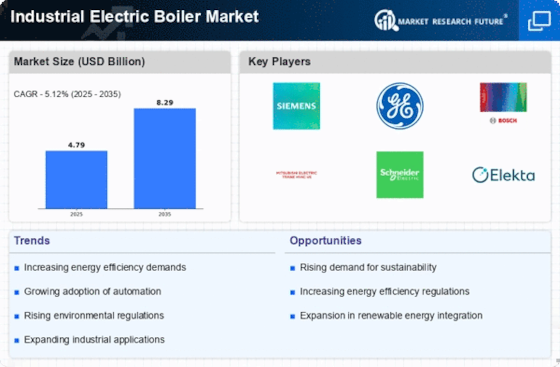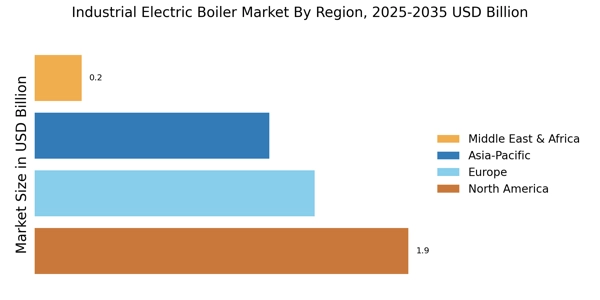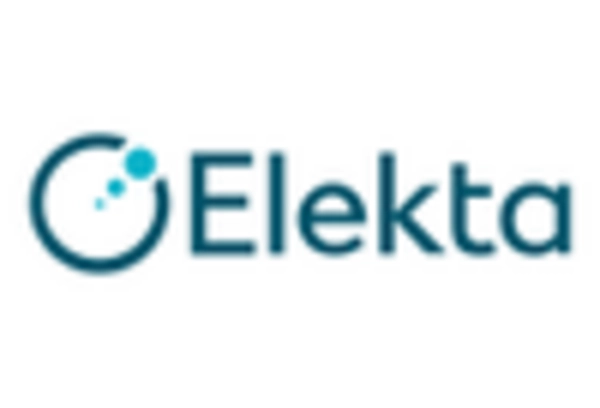Expansion of Industrial Applications
The Industrial Electric Boiler Market is expanding due to the diversification of industrial applications. Electric boilers are being utilized in various sectors, including food processing, pharmaceuticals, and textiles, where precise temperature control and steam generation are critical. This versatility enhances their appeal, as industries seek reliable and efficient heating solutions tailored to specific needs. Market projections indicate that the demand for residential boilers in niche applications will grow by 10% annually, reflecting the industry's adaptability and the increasing reliance on electric heating solutions across diverse sectors.
Rising Energy Costs and Efficiency Needs
The Industrial Electric Boiler Market is also driven by rising energy costs, compelling industries to seek more efficient heating solutions. As energy prices fluctuate, businesses are increasingly looking for ways to minimize operational expenses. Electric boilers, known for their efficiency and lower maintenance costs, present a viable alternative to traditional heating methods. Recent studies suggest that industries adopting electric boilers can achieve up to 30% savings on energy costs compared to conventional systems. This economic incentive is likely to accelerate the adoption of electric boilers across various sectors.
Regulatory Influence on Emission Standards
The Industrial Electric Boiler Market is significantly influenced by stringent regulatory frameworks aimed at reducing emissions. Governments worldwide are implementing regulations that mandate lower carbon footprints and promote cleaner energy sources. This regulatory environment encourages industries to transition from traditional fossil fuel boilers to electric alternatives. As a result, the market for industrial electric boilers is projected to grow at a compound annual growth rate of 6% over the next five years. Compliance with these regulations not only helps industries avoid penalties but also enhances their corporate social responsibility profiles.
Growing Demand for Sustainable Energy Solutions
The Industrial Electric Boiler Market is witnessing a growing demand for sustainable energy solutions as industries increasingly prioritize environmental responsibility. The shift towards renewable energy sources, such as solar and wind, complements the use of electric boilers, which are inherently cleaner than their fossil fuel counterparts. This trend is supported by a rising consumer preference for sustainable practices, prompting manufacturers to innovate and offer eco-friendly products. Market analysis indicates that the demand for electric boilers is expected to rise by 15% in sectors focused on sustainability, further propelling the industry's growth.
Technological Advancements in Heating Solutions
The Industrial Electric Boiler Market is experiencing a surge in technological advancements that enhance efficiency and performance. Innovations such as smart controls and IoT integration allow for real-time monitoring and optimization of boiler operations. These advancements not only improve energy efficiency but also reduce operational costs. According to recent data, the adoption of advanced electric boilers has led to a 20% increase in energy savings for industrial applications. As industries seek to modernize their heating solutions, the demand for technologically advanced electric boilers is likely to rise, driving growth in the market.

















